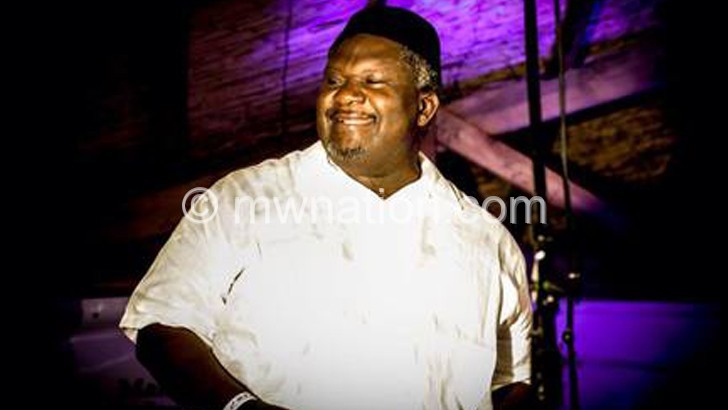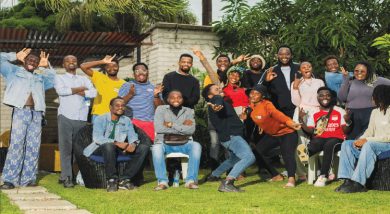Malawi music: does it exist?
Imagine, a Malawian gospel musician copying a South African counterpart and presenting the song as his own work or an emerging rapper stealing lyrics or instruments from American designer of Panda hit and presents it as his or her own composition. What about Malawian musicians who want to sound like Nigeria’s Davido, Kcee and Flavour?
Examples on how Malawian artist wants to make traditional music are numerous.
However, the influence of foreign music such as South African kwaito, pasada from Mozambique, Zimbabwe’s mbira and America’s hip hop have become dominant features of Malawian music today.
Experts describe some of the country’s musicians as undecided.
“These are type of musicians who jump on anything that comes their tray.
“When it is Nigerian music making noise, they want to sound like Nigerians. And when it is the era for Zambian music they adjust themselves to it.

“They don’t have a specific identity they can proudly defend whatever the circumstances,” said veteran music tutor Wyndham Chechamba.
He said the undecided crop of musicians are a big shame particularly on the international scene where critics classify and score music based on its culture or country of origin.
“Instead of building energy on our own sena jive or ingoma, we tend to reduce ourselves into a bunch of confused people and laughing stock when we try to sound like a Nigerian or twist our tongues towards American hip hop on the international stage,” said Chechamba.
In December last year, Parliament passed a motion requiring radio stations to play 70 percent local music to prop up support for the domestic music industry.
The motion was moved by Thyolo Thava member of Parliament (MP) Mary Navicha (Democratic Progressive Party) who argued that passionate promotion of local music was key to upholding the country’s creative industry.
MP for Blantyre City South Allan Ngumuya (DPP) and Dowa West’s Kusamba Dzonzi (Malawi Congress Party) also backed the motion.

However, the motion did not pass on a silver platter as some legislators dismissed it, questioning its relevance.
According to them, Malawi music lacks identity and authenticity with foreign genres dominating the industry.
For example, MP from Kasungu North East Elias Wakuda Kamanga (People’s Party) argued that it was worrying to note that there was no genre which can be distinctively classified as Malawian music.
The truth is that few Malawian artists are playing genuine Malawian music, while the majority are lost in identity crisis, posing danger to the country’s music characteristics.
What, then, is Malawian music or what constitute Malawian music?
According to one of Malawi’s renowned music researchers, Dr. Moya Malamusi, Malawi is home to diverse traditions that are well articulated through different artistic forms such as music and dances that ably provide concrete foundation of music identity.
“Once upon a time, hundreds of different types of lamellophones [nsansi, kalimba] were made across Africa, as it is testified in museum collections. Nowadays, if we encounter just one person playing such an instrument in Malawi, it is like a miracle,” said Malamusi.
He added that the sound traditional instruments produce plus folklore form a basis for Malawian music identity.
However, most artists do not capitalise on such rich resource to come up with compelling identities of Malawian music because of Western influences.
Dean in the Department of Arts and Heritage at the Malawi University of Science and Technology (Must) Dr. Robert Chanunkha says Malawi has unique cultural expressions and traditional dances that artists can get inspiration from.
He cited chintali, mganda, manganje, vimbuza, mbwiza, ingoma, mangolongondo, badza as some of the rich traditional dances and instruments that artists can utilise to strengthen Malawi’s music identity than falling prey to foreign influences.
Chechamba was once quoted as saying that the state of Malawi music is laughable because the industry is dominated by foreign influences such as Nigerian, South African and American touches.
He urged local musicians to capitalise on abundant cultures and traditional music to promote Malawian identity. n






Many artists in this country are copying traditional music from outside this country. And also most of our artists in their lyrics whether poem or story songs, they talk of one thing but differently (problems). I wish they could have been encouranged and tought to use our traditional music and try to change them according to the market and tech….but should be sound like Malawian…. mostly we see our friends how they are being drilled on national TV shows, like America got talent,Nigeria, BGT,Kenya even our neighbor TZ
I would blame it on colonialism. When someone tells you to let go of your true identity and emulate that which is outside of your true-self you lose the very essence of identity. colonialism created a minority complex within us Malawians that we think anything that is foreign to us is better that what we had or have. We chase to be like that which is less like ourselves so much that we don’t really know who or what we are. We copy Nigerian accents, watch nigerian movies, go out and eat Nigerian foods. Our Gospel Music sounds foreign, Our Government system is foreign